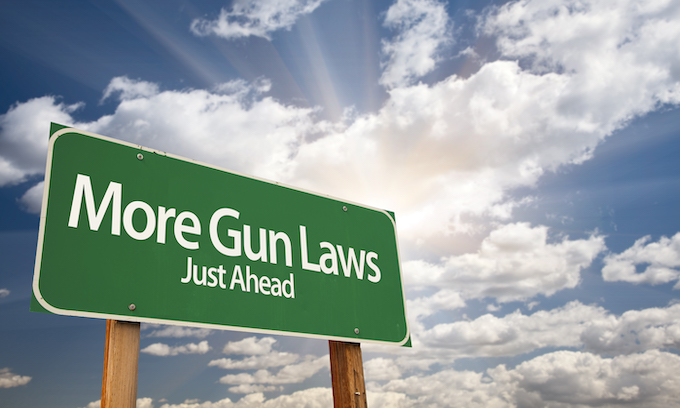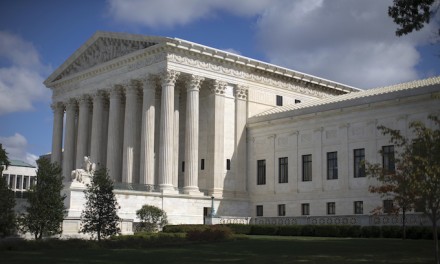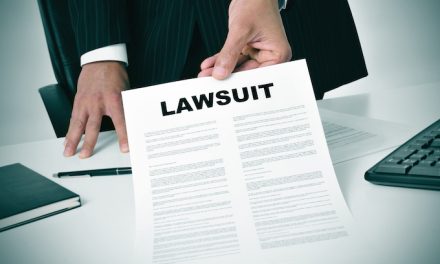A day after a gunman fired 70 rounds into a crowd at the Highland Park Independence Day parade, concerns and questions began to emerge about the availability of high-capacity firepower in Illinois, including whether existing rules and laws around background checks are enough to protect the public.
New details about the purchase of the firearm allegedly used came as authorities formally charged Robert Crimo III with seven counts of murder in the mass shooting.
Authorities said Crimo legally purchased the high-powered rifle he allegedly used to shoot more than three dozen people, including seven who were killed. And he did so even after a threatening episode was reported to Highland Park police, who in turn notified Illinois State Police, and after authorities had been alerted to him being suicidal.
It appeared that existing law — including the state’s so-called red flag law — wasn’t used to take weapons away from Crimo, long before he allegedly perched atop a roof along the parade route and opened fire. And current laws did nothing to head off his purchase of weapons, even in politically blue Illinois.
Illinois State Police on Tuesday confirmed they had received a warning from Highland Park police about Crimo three months before he successfully applied for a firearm owner’s identification card with the help of his father. Illinois State Police administer that process.
The rifle was one of five firearms Crimo had purchased, authorities said. The rifle he allegedly used Monday, along with a second one, was purchased in the Chicago area, law enforcement authorities said, without naming a gun shop.
Crimo would have had to pass a criminal-background check, both to secure an Illinois gun permit, or FOID card, and to make the purchase. Generally, it takes a felony conviction or committal to a mental facility to bar someone from having a firearm in the state, experts said.
But an emerging picture of a very troubled background, including not only chilling online video postings about gun violence but also an attempted suicide and a threat on a family member with knives, raised questions about Illinois’ gun-permit system.
Northwestern University Feinberg School of Medicine professor Lori Ann Post, who has studied decades of mass-shooting events, said the story playing out in Highland Park fits an all-too-familiar pattern of failing to identify and act to prevent those who should not be carrying firearms from doing so.
“We look backwards and it makes sense that he did this,” Post said. “But what we have to do is identify this ongoing, escalating socially deviant behavior. We are absolutely failing.”
Law enforcement authorities on Tuesday began to provide more details about the firearms purchased by Crimo, as well as two calls to his home when he allegedly made threats on both himself and others.
Crimo purchased the rifle used the assault around 2020 and 2021, according to Sgt. Chris Covelli, the spokesman for the Lake County Major Crimes Task Force. Covelli did not provide the exact location or dates of the purchase.
Covelli, speaking at a press briefing, also said that a year or so prior, in April 2019, police were called because Crimo had attempted suicide, which resulted in Highland Park police visiting his home. The family assured the responders that they were seeking help from mental health authorities, police said.
Five months later, police were again called to Crimo’s home because he was threatening to kill people, Covelli said. Responding officers also confiscated 16 knives, a dagger and a sword from the home.
Covelli said police did not have probable cause to make an arrest and also that no one signed a complaint against Crimo. But Highland Park police did notify Illinois State Police, the agency that issues Illinois gun permits, about the incident.
“Highland Park police notified Illinois State Police,” Covelli said, when pressed by reporters for details. “Where it goes from there, I don’t want to speak to.”
Steven Greenberg, who represents Crimo’s parents, said Crimo lived with his mother at the time of the purported threats and the knives’ confiscation. Crimo’s father did not know about incident when he sponsored his son’s FOID application a few months later, according to Greenberg.
Illinois’ red flag law, which has existed since 2019, is designed so that people can ask a civil court to intervene and remove firearms from someone who appears to be a danger to themselves or others, experts said.
Late in the day Tuesday, the Illinois State Police issued a statement, confirming it received a “clear and present” danger warning in September 2019 about Crimo after the Highland Park visit to the home. At that time, Crimo did not have a FOID card.
“The report was related to threats the subject made against his family. There were no arrests made in the September 2019 incident and no one, including family, was willing to move forward on a complaint nor did they subsequently provide information on threats or mental health that would have allowed law enforcement to take additional action,” including revoking a FOID card, because Crimo didn’t yet have one, the statement read. “Additionally, no Firearms Restraining Order was filed, nor any order of protection.”
But three months later, in December 2019, Crimo applied for a FOID card, the statement said.
“The subject was under 21 and the application was sponsored by the subject’s father. Therefore, at the time of FOID application review in January of 2020, there was insufficient basis to establish a clear and present danger and deny the FOID application,” the statement said.
The situation had an immediate impact in the political realm, as Gov. J.B. Pritzker released a statement pledging to strengthen rules on the books here.
“Unfortunately, every time a mass shooting occurs it serves as a stark reminder that our gun laws often fall short of the rigorous standards that feel like common sense to most Americans,” the statement read. “I call on all Illinoisans to learn about and use the Illinois Firearm Restraining Order Act already in law to alert authorities to dangerous individuals with guns. My administration will work with the General Assembly to ensure we take on the gun lobby and do everything we can to further strengthen our gun control and red flag laws.”
A clear and present danger report from September 2019 would not necessarily have been legal grounds for the state police to deny Crimo a FOID card when he applied a few months later, said Robert Deters, a Lake County criminal defense attorney who often handles FOID appeals.
Besides, Deters said, it is likely that state police did not even retain records of the clear and present danger report for very long after receiving it.
“(ISP’s) Firearms Services Bureau is an overwhelmed mess of a bureaucratic office,” he said. “… What was already a very slow process has gotten excruciatingly so, and I have no idea what their level of integration is for keeping track of these things. My guess is very little.”
The clear and present danger report would not have shown up on the typical law enforcement background check that is conducted for FOID applications, Deters said. Even if Crimo had been arrested after the incident with the knives, but not charged, the arrest would have shown up on the background check — but it would not have any further detail, according to Deters.
“They couldn’t even look at that and say he threatened to kill people,” he said.
For Post, and other experts interviewed by the Tribune, the notification highlights how even a system trying to respond fails.
“I think it is great that police made the call and that it is unfortunate it didn’t go any further,” Post said. “We need a system for reporting up.”
Illinois followed other states in enacting such a law, and studies are now emerging about the use of these interventions, said Daniel Webster, co-director of the Johns Hopkins Center for Gun Violence Solutions.
Webster said there is “compelling data” showing that people across the country are using the laws to intervene with loved ones who are threatening violence, including mass shootings.
Webster and others said Crimo’s online postings likely could have been used to seek a court order to seek Crimo’s weapons.
In announcing charges Tuesday afternoon, Lake County State’s Attorney Eric Reinhart also spoke pointedly about the state’s red flag law.
“Illinois has a strong red flag law that keeps communities safe and respects everyone’s rights,” Reinhart said. “We must vastly increase awareness and education about this red flag law.”
Tribune reporter Jake Sheridan contributed.
©2022 Chicago Tribune. Visit chicagotribune.com. Distributed by Tribune Content Agency, LLC.
—-
This content is published through a licensing agreement with Acquire Media using its NewsEdge technology.



















Lesson being: You can pass all the laws you want—the answer is for people to use common sense—report suspicious behavior—and prompt action taken by the authorities. This is a case of everybody dropping the ball.
Unfortunately, even reporting suspicious/troubling/disturbing behavior isn’t a panacea, because:
1) Mrs. Nuffins never thinks that her precious Dindu could ever do anything wrong.
2) Half the U.S. is poised to claim intersectional sainthood by reflexively shouting “RAAAAACIST!” at the first opportunity.
Lessons being, UNTIL THOSE in charge of monitoring all these so-called red flags and the like, GET CHARGED FOR continually IGNORING THEM, and then said person goes on to do one of these acts. IMO NOTHING will change.
Your laws ignore our deepest needs,
Your words are empty air.
You’ve stripped away our heritage,
You’ve outlawed simple prayer.
Now gunshots fill our classrooms,
And precious children die.
You seek for answers everywhere,
And ask the question “Why?”
You regulate restrictive laws,
Through legislative creed.
And yet you fail to understand,
That God is what we need!
“Men and women are three-part beings. We all consist of body, mind, and spirit. When we refuse to acknowledge a third part of our make-up, we create a void that allows evil, prejudice, and hatred to rush in and wreak havoc. Spiritual presences were present within our educational systems for most of our nation’s history. Many of our major colleges began as theological seminaries. This is a historical fact. What has happened to us as a nation? We have refused to honor God, and in so doing, we open the doors to hatred and violence. And when something as terrible as Columbine’s tragedy occurs — politicians immediately look for a scapegoat.
-Darrell Scott, the father of Rachel Scott, a victim of the Columbine High School shootings-
Amen!
We don’t need more laws, we need to enforce the ones on the books. Oh, I forgot, the left has defunded the police, restricted their authority to do anything, with less manpower the followup is nearly impossible. Even so, the criminal legal system (there is no more justice) is letting bad elements out onto the streets faster than they can be picked up.
Agreed. IT matters not how many laws there are.. WHEN THE DA’s and state AGS< REFUSE To bloody enforce them!
Fun fact: All but two mass shooters bought their guns legally, passing a background check because they had no criminal record before that. The other two stole theirs, including one who lolled his own mother to get it. “Red flag” laws violate the 2nd, 4th, and 5th amendments and only take away the person’s firearms. They don’t result in an arrest so the potential killer is still in the streets and able to get firearms or other weapons illegally. The same with background checks. They don’t investigate or arrest the applicant trying to buy a firearm illegally, they just don’t let him buy the gun he applied for. But then most of the “first refusals are because the applicant has a name similar to that of a prohibited person or made a paperwork mistake anyway.
ANd since daddy dearest, EVEN AFTER ALL his prior bad acts ,SIGNED OFF, on helping his son buy those guns, HE IMO SHOULD DAMN WELL be legally charged, with being an ACCESSORY TO every crime his son is charged with!
Laws are useless when you have a government so inept it fails to properly enforce them. The end game is to take everyone’s guns because that is the easy answer for a bloated inefficient bureaucracy. Government doesn’t need to be accountable when they have unlimited power.
They are not inept.. THEY ARE WILLFULLY unwilling.